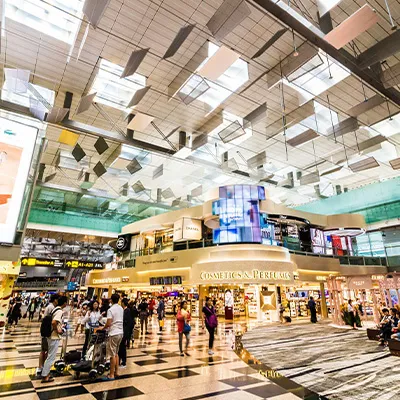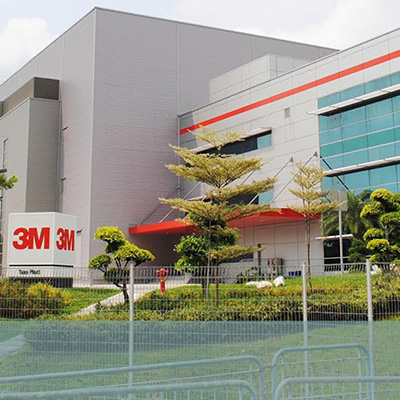DESPITE the coronavirus pandemic and the disruption in trade and capital flows and economic downturn it caused this year, Singapore has been ranked the world's second-most connected country.
It was ranked first for the size of its international flows in goods, capital, information and people relative to its domestic economy, in the 2020 edition of the DHL Global Connectedness Index (GCI). But Singapore missed out on the top spot in the overall GCI ranking to the Netherlands, which scored a total of 91 points, by just two points. Both countries maintained their positions on the list from the previous edition.
The GCI - compiled by Deutsche Post DHL Group in collaboration with the New York University Leonard N Stern School of Business (NYU Stern) - is a detailed analysis based on more than 3.5 million data points that track the globalisation of 169 countries.
The other top 10 positions in the overall ranking were taken by Belgium, the United Arab Emirates, Ireland, Switzerland, Luxembourg, the UK, Denmark and Malta.
The GCI also has two separate rankings that measure each country's global connectedness based on the size of its international flows relative to the size of its domestic economy - referred to as "depth" - and the extent to which the flows are distributed globally - or "breadth".
The depth leaders - economies with the highest proportions of flows crossing national borders - are Singapore, Hong Kong, Belgium, the Netherlands and Estonia.
The breadth champions - countries with the most global flow patterns - are the UK, the US, the Netherlands, Israel and South Korea.
Steven Altman, senior research scholar at NYU Stern and director of the DHL Initiative on Globalization, said that while social distancing has been essential for public health, the pandemic exacerbated geopolitical and societal fault lines, compounding the challenges of controlling the spread of Covid-19 and keeping economies functioning.
Globalisation did not collapse in 2020 but the pandemic did transform, at least temporarily, how countries connect, he said.
As travel plummeted, digital flows surged. International trade and investment took strong hits at the beginning of the pandemic and then started to recover, he noted.
According to the report, the world's level of global connectedness is set to decline in 2020 due to the pandemic. However, it is unlikely to fall below levels seen during the 2008-2009 global financial crisis.
International trade rebounded strongly after a sharp plunge at the onset of the pandemic. Still, the proportion of global output crossing national borders will decline modestly in 2020.
People flows suffered an unprecedented decline this year as nations closed borders to curb the spread of the virus. International travel is on track to fall all the way back to its 1990 level.
While debate continues about the future of globalisation, global flow data and forecasts reaffirm that the world is, and will remain, only partially globalised, the report said.
All signs point to a future where international flows will remain so large that decision-makers ignore them at their peril, even as borders and cross-country differences continue to make domestic activity the default in most areas. Separately, Deutsche Post DHL Group said on Thursday that it will increase its workforce in Singapore.
DHL Express, which has a workforce of 1,600 people here, has hired 57 permanent staff in the last couple of months, ahead of another surge in volumes expected during the year-end holiday season.
DHL Express Singapore managing director Christopher Ong said most of the new hires are frontline staff - couriers, operations agents and customer service agents, among others.
Putting the hiring drive in global perspective, DHL Express CEO John Pearson said the company has taken on board more than 10,000 people worldwide to deal with the holiday season and a further surge in volumes that is likely in 2021.
On the issue of vaccines, Mr Pearson said DHL's presence in 220 countries and its supply chain capabilities in life science and healthcare will ensure that it leads the distribution of vaccines globally. THE STRAITS TIMES
© 2020 Singapore Press Holdings
This article was from The Singapore Business Times and was legally licensed through the Industry Dive publisher network. Please direct all licensing questions to legal@industrydive.com.![]()







